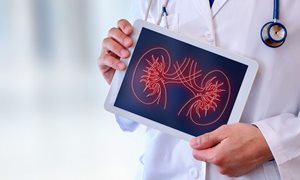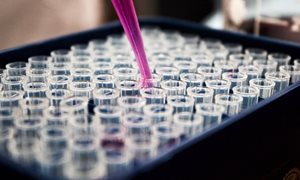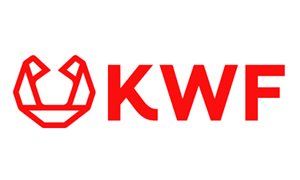
Several Radboudumc researchers have been awarded a VIDI grant by the Dutch Organisation for Scientific Research (NWO). They each receive a sum of 800,000 euros, which they will use over the next five years to develop their own innovative line of research and to set up a research group.
The projects that have been awarded funding range from brain research into memory and the role of stress in Parkinson's disease to new treatment methods for cancer. In total 78 researchers receive a VIDI grant, including several scientists from Radboud University.
Rick Helmich - The impact of stress on Parkinson's disease
Neurologist and Parkinson researcher Rick Helmich aims to understand why Parkinson patients are very sensitive to stress, if chronic stress accelerates their disease course, and if an intervention can reduce this. Using brain scans, he will test the effect of a stressor (corona pandemic) and stress-reduction (mindfulness) on disease course and brain function in Parkinson’s disease.
Marloes Henckens – Engraved in memory
Traumatic memories can haunt one for life. This project of neuroscientist Marloes Henckens investigates the role of an aberrant trauma memory in the development of symptoms of post-traumatic stress disorder (PTSD) by investigating its neural representation and underlying neurobiological mechanisms.
Sandra Heskamp – Alpha-emitters: a new treatment option for therapy-resistant tumor cells
Sandra Heskamp is professor of Nuclear imaging and therapy in immuno-oncology. With this grant she will investigate immunotherapy, that has demonstrated to be very effective in subgroups of cancer patients. However, many tumors are resistant to this treatment. The researcher will develop a new treatment approach to kill resistant cancer cells using alpha-particle emitting radionuclides. In combination with immunotherapy, this can improve the outcome of cancer patients.
Geert Litjens – AI-built bridges for prostate cancer patients
Care for prostate cancer patients could benefit from building bridges between medical specialties to truly understand the disease. Within this project, Geert Litjens will leverage state-of-the-art artificial intelligence to integrate radiology and pathology, learning how the appearance of the disease under the microscope causes its behavior within the patient. Geert Litjens studied biomedical image analysis at TU/e. Thanks to a NWO Veni and KWF Bas Mulder Award, he started his own line of research at Radboud university medical center. Currently he leads the Computational Pathology research group together with Jeroen van der Laak and Francesco Ciompi.
Vitoria Piai – How the dictionary in our brain works
Vitoria Piai, a researcher at the Radboud university medical center and Radboud University, and her colleagues will look at how people search for words in their brains. Is searching for words the same as searching for other information, for example about personal events? They will also investigate how the dictionary in our brains can adapt following brain damage due to a stroke or a tumor.
Lennart Verhagen – Making brain waves with ultrasound
Lennart Verhagen is an assistant professor at the Donders Centre for Cognition, Radboud University and a visiting researcher at Radboudumc. His lab is pioneering a new technique - using focused ultrasound - to safely stimulate the human brain at unprecedented precision, with applications for neuroscience and brain disorders. With this grant, he will investigate brain disorders, which affect one in four people. Treatment options are limited. It is a dream of medicine to precisely and safely modulate deep brain regions. Focused ultrasound holds that potential. In this project, the researchers will pioneer novel brain-inspired protocols for a new approach to help Parkinson’s patients.
-
Want to know more about these subjects? Click on the buttons below for more news.
More information
Pauline Dekhuijzen

wetenschaps- en persvoorlichter
Related news items

The future of laboratory animal research More attention to living conditions of laboratory animals
16 May 2022 On May 9, a meeting took place at the Radboudumc as a result of the launch of the Dutch Transparency Agreement on Animal Testing. The Radboudumc is one of the twenty signatories and has thus committed itself to openly and transparently communicate its vision and policy with regard to animal testing. read more
Body composition is more important than BMI for renal cancer survival rates
11 January 2022 Body composition is important for survival rates in renal cell cancer. Research from the Radboudumc shows that low muscle quality and low organ fat are associated with poor survival. This involves different stages of renal cancer, ranging from stage I-III to stage IV. read more
Radboudumc receives 2.6 million Euro from KWF for cancer research
22 December 2021 The Dutch Cancer Society (KWF) is awarding funds with a total of more than 2.6 million euros to five new research projects. The awards are part of the latest round of funding from KWF, in which almost 27 million euros is being allocated to Dutch cancer research. The projects will start in mid-2022. read more
Tiny blood vessels, big problems Radboudumc receives grant for international collaboration
3 November 2021 The Radboudumc, together with the University of Cambridge, receives a grant of €1.8M from three collaborating cardiac foundations for international research into the small blood vessels in the brain. This study will be led by Neurologist Frank-Erik de Leeuw and internist Niels Riksen. read more

